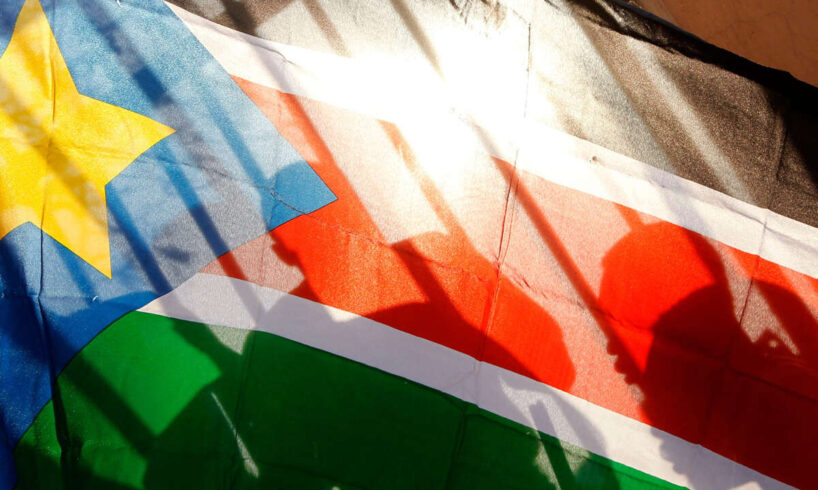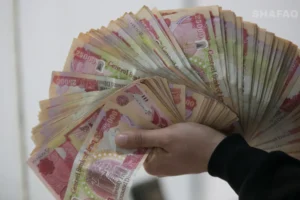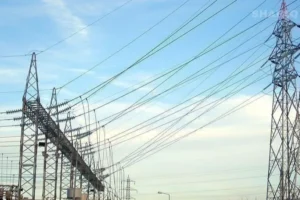
Will the world’s newest nation become home to Gaza’s displaced population? The Associated Press reported Tuesday on ongoing discussions between Israel and South Sudan about Palestinian refugees potentially relocating to the African country under Israel’s “voluntary immigration” initiative, reflecting Trump’s February policy statements. On Wednesday, Deputy Foreign Minister Sharren Haskel confirmed her upcoming visit to the nation, although the government in the African nation said it “firmly refutes” that such a plan is being discussed and called the media reports “baseless.”
However, how equipped is this country, independent since 2011, to accommodate Gaza conflict refugees? Current conditions suggest the nation requires humanitarian intervention as urgently as Gaza itself.
Devastating statistics reveal the reality of one of the globe’s most impoverished nations. South Sudan occupies the 192nd position among 193 countries in the Human Development Index. The UN Office for the Coordination of Humanitarian Affairs (OCHA) estimates that roughly 9.3 million citizens from the total population of 12 million require humanitarian support. The Integrated Food Security Phase Classification (IPC) forecasts that 7.8 million people will need emergency food assistance between April and July. The assessment also confirmed that 83,000 residents experienced “catastrophic” hunger levels.
A mother of five sits outside her home with her children and neighbors’ children in Kotobi, Mundri West County, South Sudan, June 26, 2025 (Photo: Florence Miettaux/AP)
South Sudan achieved independence in 2011 following prolonged warfare against Sudan’s central authority in Khartoum. Furthermore, internal civil conflict erupted in 2013, concluding only in 2020 after claiming approximately 400,000 lives.
Compounding these challenges, neighboring Sudan descended into civil war in April 2023, prompting the UN to designate it as “the world’s most severe humanitarian crisis” this year. South Sudan’s economy sustained massive damage, with GDP shrinkage, inflation spikes, and increased oil production expenses due to reliance on Sudanese infrastructure, the African Development Bank reported. UN statistics indicate that 1.1 million refugees fled from Sudan into the country.
South Sudan clearly lacks resources to address its existing crisis. International corruption measurements ranked the nation last – 180th among 180 evaluated countries – while international agencies report that merely 27% of citizens possess literacy skills.
The country’s medical infrastructure has essentially disintegrated. World Health Organization (WHO) data shows life expectancy at just 58.6 years, with primary mortality causes including respiratory tract infections, diarrheal diseases, and HIV/AIDS. The nation maintains the tragic global record for maternal deaths – 1,223 mothers per 100,000 deliveries.
Israeli-South Sudanese relations extend back to the pre-independence years. Foreign media reports suggest Israel backed South Sudanese forces during their struggle against Khartoum’s central government and immediately recognized independence upon declaration. Israel currently supports various humanitarian initiatives there. Concurrently, accusations exist regarding Israeli weapons supplies to the government during internal civil warfare, despite international prohibitions.
Israel’s Deputy Foreign Minister Sharren Haskel (R) and South Sudan’s Foreign Minister Monday Simaya Kumba (L)
American lobbyist Joe Schlawick, who represents South Sudan’s government, informed Associated Press about briefings he received from South Sudanese officials concerning these negotiations. He indicated that Israeli representatives plan to visit to evaluate potential Palestinian camp establishments, with Israel anticipated to fund these temporary facilities.
Schlawick confirmed US awareness of Israeli discussions while emphasizing America’s non-participation in direct negotiations. South Sudan seeks the Trump administration’s removal of travel prohibitions and sanctions against senior leadership, having already accepted eight Americans deported under Trump’s illegal immigration enforcement policies. The nation also suffered from substantial reductions in US assistance funding.
Deputy Foreign Minister Sharren Haskel on Wednesday announced her official South Sudan visit. Her announcement detailed planned meetings with President Salva Kiir Mayardit, Foreign Minister Ramadan Samaiya Komba, and additional senior officials, culminating in a memorandum of understanding regarding foreign ministry consultations.
“While international attention concentrates exclusively on Gaza, South Sudan confronts a genuine humanitarian catastrophe,” Haskel stated before departure. “Authentic hunger continues claiming lives among numerous refugees from Sudan’s conflict.”





